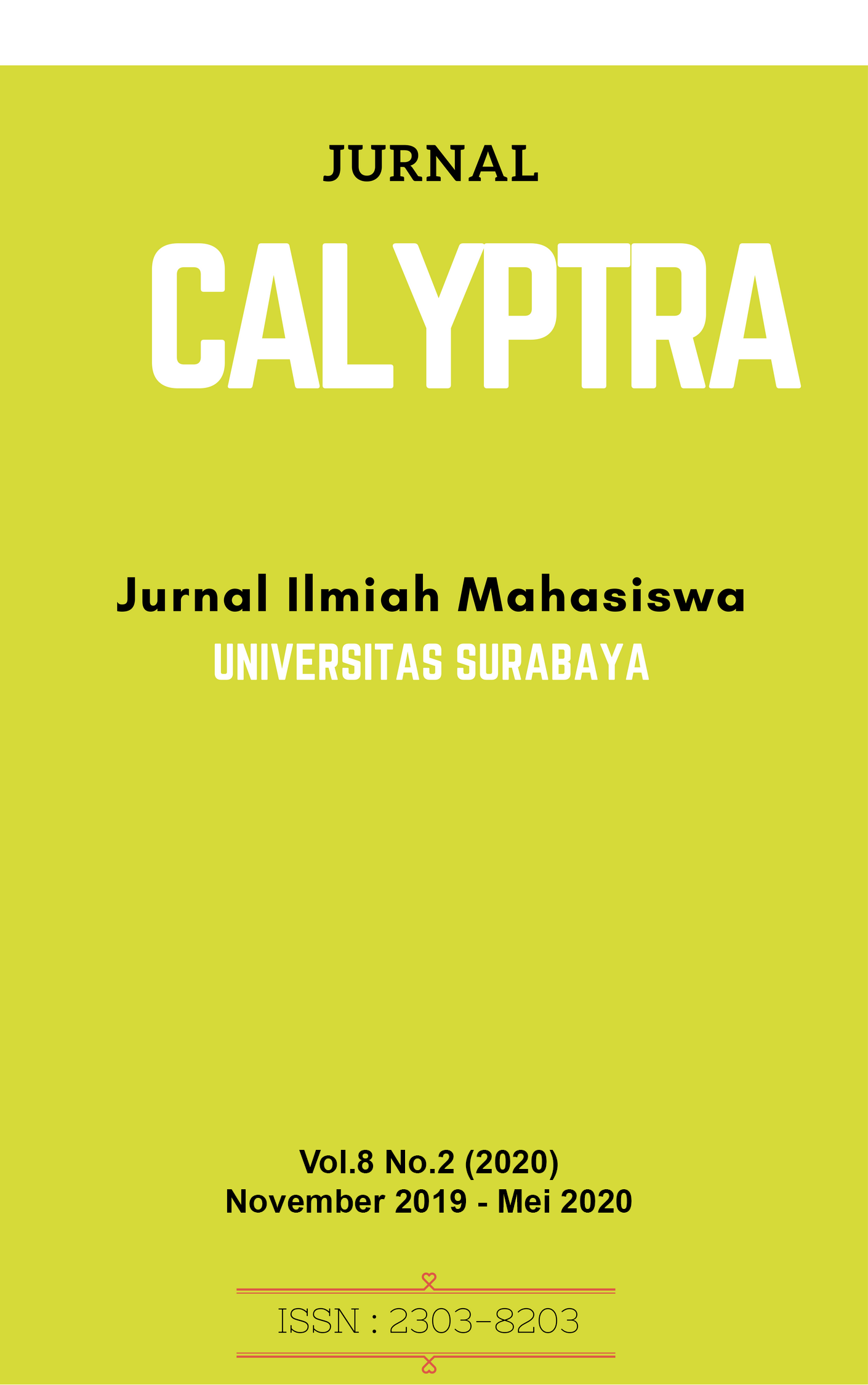Implikasi Yin-Yang Terhadap Etika Bisnis dalam Perspektif dari Seorang Pemimpin
 Abstract Views:
565 times
Abstract Views:
565 times
 PDF Downloads:
464 times
PDF Downloads:
464 times
Abstract
Abstrak-- Nilai etika bisnis menjadi nilai krusial bagi kebutuhan dalam operasi bisnis suatu badan usaha dimasa sekarang. Tidak hanya terbatas untuk mendapatkan kesetiaan dari karyawan tetapi mendapatkan kepercayaan dari pihak eksternal seperti pembeli, pemasok bahkan pemerintah sehingga dapat mempertahankan operasi bisnis. Akan tetapi dalam penentuan nilai etika kerap dari seorang pemimpin menemukan konflik kepentingan antara diri sendiri dengan berbagai macam kepentingan dibadan usaha tersebut. Dengan adanya Yin-Yang sebagai filosofi yang mendasari keputusan dan kebijakan dalam suatu badan usaha diharapkan dapat menjadi bantuan kepada seorang pemimpin untuk dapat mengambil keputusan untuk memenangkan hati setiap pihak. Penelitian ini membahas implikasi filosofi Yin-Yang terhadap Etika Bisnis dari seorang pemimpin. Hasil penelitian ini menemukan bahwa dalam filosofi Yin-Yang dapat membentuk nilai etika yang telah sesuai dengan konsep teoritis, namun pada realitas seringkali sebelum keputusan diambil pemimpin akan mengalami konflik kepentingan dengan dasar kapitalisme yang mengedepankan kemelekatan pada angka profit hingga akhirnya kebijaksanaan dalam menemukan harmoni dalam filosofi Yin-Yang dapat menemukan solusi.
Kata kunci: Etika Bisnis, Kepemimpinan, Yin-Yang , Perspektif Bisnis
Abstract-- Ethical value become critical value for needs in a business venture.in the present. Not only limited to get loyalty from employees but also from external parties such as buyers, companies and even the government so it could maintain the business cycle. But in the ways of determining ethical value for certain purposes, the owner has experienced a conflict of interest several times. With Yin- Yang provisions as the philosophy that underlies the results and policies in the body of the business entity can be sought to get a decision to win the hearts of each party. This study discusses the implications of the Yin-Yang philosophy of business ethics from a leader. The results of this study found that in Yin-Yang philosophy can form values that are in accordance with theoritical concepts however, in reality before decision was made. The leader will prioritize goals on the basis of capitalism which prioritizes clinging to profit figures until finally finding harmony in the Yin-Yang philosophy which find solutions..
Keywords: Business Ethics, Leadership, Yin-Yang, Business Perspective
Downloads
References
Avolio, B.J. 2007. Promoting more integrative strategies for leadership theory building. American Psychologist, Vol. 62, pp. 25-33.
Bai. X , Roberts, W. 2011.Taoism and its model of traits of successful leaders. Journal Of Management Development. Vol. 30 Issue: 7/8, pp.724-739
Chen, M.-J. and Miller, D. 2011. The relational perspective as a business mindset: Managerial implications for East and West. Academy of ManagemenT Perspective, Vol. 25 No.3, pp. 6- 18.Review International. Vol. 7 Iss 4 pp. 510 – 541.
Efferin, S. 2010. Triangulasi dalam Penelitian Kualitatif-Interpretif di Bidang Akuntansi : Seni Mengelola Keterbatasan. In: Prosiding Kolokium dan Seminar Nasional Program M.Si dan Doktor. Program Magister Sains dan Doktor Ilmu-ilmu ekonomi Universitas Gadjah Mada, Yogyakarta, pp. 1-
Ethics Resource Center, 2009 National Business Ethics Survey: Reporting—Who’s Telling You What You Need to Know, Who Isn’t, and What You Can Do About It (Washington, DC: Ethics Resource Center
Fang, T. 2012. Yin Yang: A new perspective on culture. Management and Organization Review, 8(1): 25-50.
Fluker, Walter Earl.2009. Ethical Leadership: The Quest for Character, Civility, and Community . Minneapolis, MN: Augsburg Fortress. Ip, P. 2009. The challenge of developing a business ethics in China..Journal of Business Ethics Ip, P. 2009. Is Confucianism good for business ethics in China?.Journal of Business Ethics
Karp, T. and Helgo, T.I.T. 2009..Leadership as identity construction: the act of leading people in organizations: a perspective from the complexity sciences, Journal of Management Development, Vol. 28 No. 10, pp. 880-96.
Kwang-Kuo Hwang. 2015. The Strategic Management of Yin-Yang Balance and Ethical Leadership in Chinese Organizations In West Meets East:Building Theoretical Bridges.
Lawrance, T. Anne and Weber, James. 2014. Business And Society: Stakeholders, Ethics, Public Policy, Fourteenth Edition. The McGraw-Hill Companies, Inc
Li, P. P. 2016. Global implications of the indigenous epistemological system from the east:How to apply Yin-Yang balancing to paradox management. Cross Cultural & Strategic Management, Vol. 23 No.1, pp. 42–77.
Li, J., Wang, J. and Fan, W. 2011. Yin yang and company growth: a case study of a coal company of Shanxi in China. Chinese Management Studies, Vol. 5 No.4, pp. 380-393
Lu, X. (2009). A Chinese perspective: Business ethics in China now and in the future. Journal of Business Ethics
Luo, Y. and Rui, H. 2009. An ambidexterity perspective toward multinational enterprises from emerging economies. Academy of Management Executive, Vol. 23 No.4, pp. 49-70.
Luo, Y , Zheng, Qinqin . 2016. Competing in Complex Cross- Cultural World: Philosophical Insights from Yin-Yang, Cross Cultural&Strategic
Lowe, K.B. and Gardner, W.L. 2000. Ten years of the leadership quarterly: contributions and challenges for the future, Leadership Quarterly, Vol. 11, pp.459-514.
Neuman, W. L. 2014. Social Research Methods: Qualitative and Quantitative Approaches Seventh Edition. Assex: Pearson Education Limited.
Rubens Pauluzzo, Marta Guarda, Laura De Pretto, Tony Fang. 2018 .Managing paradoxes, dilemmas, and change: A case study to apply the Yin Yang wisdom in Western organizational settings. Cross Cultural & Strategic Management
- Articles published in CALYPTRA are licensed under a Creative Commons Attribution-ShareAlike 4.0 International license. You are free to copy, transform, or redistribute articles for any lawful purpose in any medium, provided you give appropriate credit to the original author(s) and the journal, link to the license, indicate if changes were made, and redistribute any derivative work under the same license.
- Copyright on articles is retained by the respective author(s), without restrictions. A non-exclusive license is granted to CALYPTRA to publish the article and identify itself as its original publisher, along with the commercial right to include the article in a hardcopy issue for sale to libraries and individuals.
- By publishing in CALYPTRA, authors grant any third party the right to use their article to the extent provided by the Creative Commons Attribution-ShareAlike 4.0 International license.



